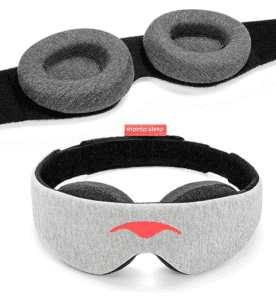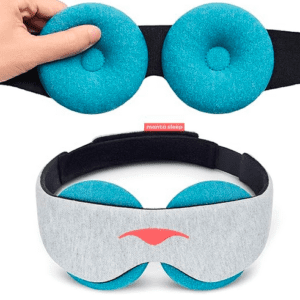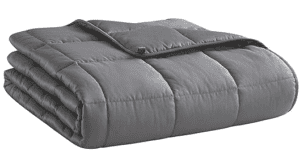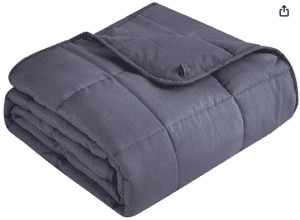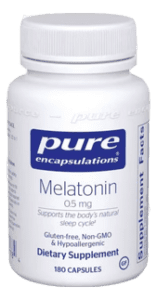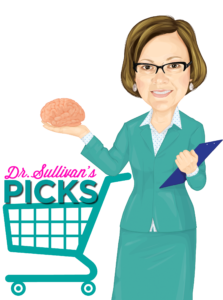 Welcome to a new feature here at I CARE FOR YOUR BRAIN.
Welcome to a new feature here at I CARE FOR YOUR BRAIN.
After five years of being asked to recommend specific brain health products, we are finally doing it!
We will be featuring different themes of brain health and links to products Dr. Sullivan recommends to her patients or has used herself.
SLEEP
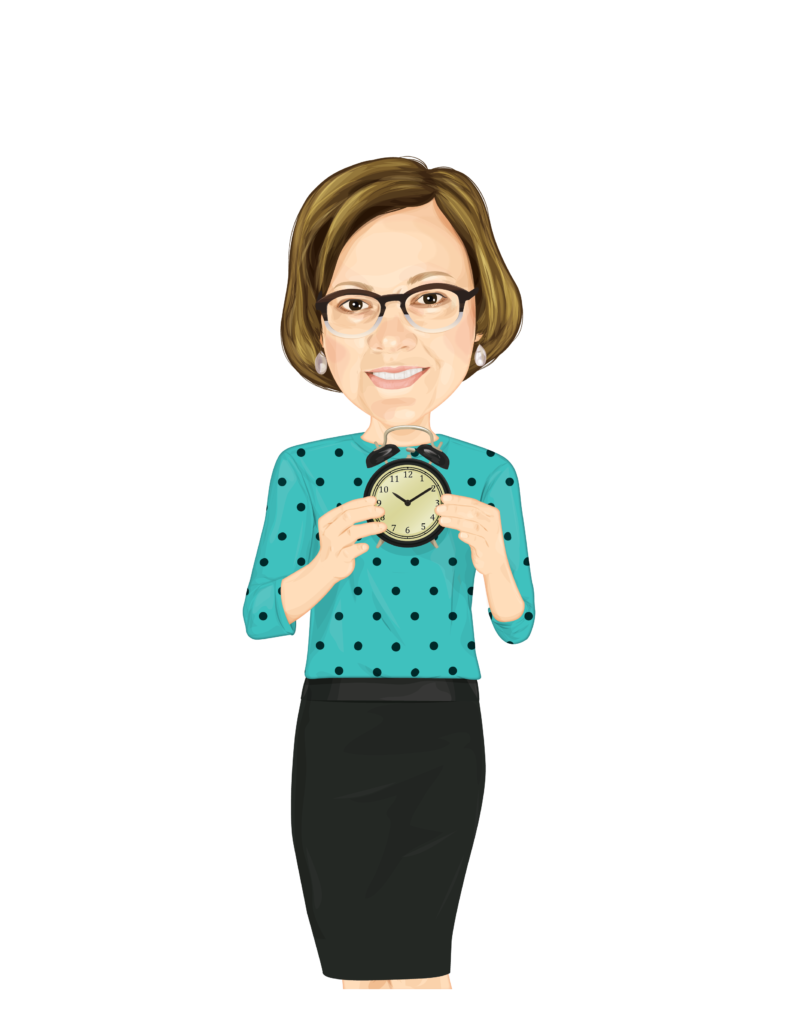 Why is sleep so important?
Why is sleep so important?
Sleep is a staple of physical and mental health, including brain health. Sleep is a biological necessity; we need it to survive and without it, we die. The major restorative functions in the body occur mostly, or in some cases only, during sleep and include muscle growth, tissue repair, protein synthesis, and growth hormone release.
For brain health specifically, there are several major functions that occur during sleep, including memory consolidation, emotional processing and a deep cleaning process. In deep sleep, stages 3 and 4, our cerebrospinal fluid and the brain’s immune system clear away waste products from our brain cells. When we are awake, neurons produce a chemical called adenosine, a by-product of the cells' activities. Without consistent deep sleep, we have incomplete clearing of adenosine and other waste products like blood cells and the result is chronic inflammation. Chronic inflammation is the cause or exacerbates many brain diseases and disorders.
What can I do to improve my sleep?
The most important thing is to educate yourself about the paramount importance of sleep, its relationship to brain health and your specific sleep patterns. Once you understand just how impactful deep sleep in particular is, you will be more motivated to learn evidence-based strategies for improving your sleep quality.
TRACK YOUR SLEEP
This is the best first step to start taking your sleep more seriously. Use a data collection approach with both subjective and objective measures.
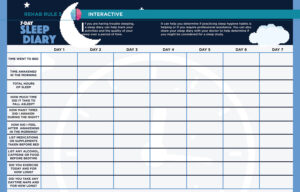 A SLEEP DIARY like the free one we offer here is a great place to start tracking your subjective experiences (how many hours you think you are getting, how you feel upon awakening, naps taken, etc).
A SLEEP DIARY like the free one we offer here is a great place to start tracking your subjective experiences (how many hours you think you are getting, how you feel upon awakening, naps taken, etc).
You also need the help of an actual sleep tracker to understand how long it typically takes you to fall asleep, how many minutes you spend in light vs. deep sleep, how many times you wake up in the night and how long it takes to fall back to sleep. There are many sleep trackers on the market and they range in price. From here, you can identify where your sleep is falling short and develop a baseline and set goals to monitor. I recommend these three:
PRODUCT PICK #1: SLEEP TRACKER
PRACTICE SLEEP HYGIENE
Once you know what your sleep targets are you should start practicing the basics of sleep hygiene:
- Keep a regular routine for sleeping and waking
- Expose your face to early morning sunlight
- Reduce exposure to strong light sources one to two hours before sleep
- Lower the temperature a few degrees in your bedroom
- Wear a high-quality sleep mask (see below) to block out light from the rising sun or ambient lights
- Using your bed for sleeping and intimacy only
- Develop a pre-sleep ritual to let your body know that it's time to wind down
- Use an appropriately weighted blanket (see below)
PRODUCT PICK #2: SLEEP MASK
PRODUCT PICK #3: WEIGHTED BLANKET
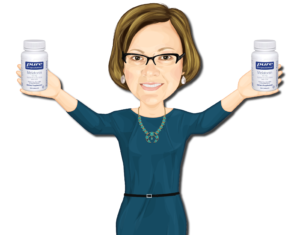 CONSIDER MELATONIN
CONSIDER MELATONIN
If these techniques do not result in sleep that is consistently refreshing and at least six to seven hours, then it is time to consider supplementing with low-dose melatonin one hour before going to bed.
This year, I began searching for a supplement company that offered products that met my criteria:
- The products needed to have third party purity testing.
- The products must be backed by verifiable science.
- The products needed to be free of any other additives (wheat, gluten, GMO’s, binders, fillers, preservatives) and every ingredient, even if a trace amount, must be listed on the label.
- The products needed to be available at low doses.
- The products must be exclusively made in the USA and come with clinical support from a Registered Dietician.
- The company needs to be driven by more than profits but also sustainability and giving back to the community.
Pure Encapsulations TM met every one of my criteria.
PRODUCT PICK #4: LOW-DOSE MELATONIN
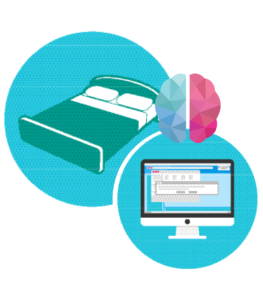 SLEEP STUDY
SLEEP STUDY
If melatonin does not result in sleep that is consistently refreshing and at least six to seven hours, then it is time to consider an overnight sleep study to identify any possible sleep disorders that need to be treated. Ask your primary care provider or neurologist for a referral.
EDUCATION IS EMPOWERMENT!
Read these articles selected by Dr. Sullivan to learn more about evidence-based sleep interventions:
Sleep masks: https://academic.oup.com/sleep/article/46/3/zsac305/6912219
Weighted blanket: https://onlinelibrary.wiley.com/doi/pdf/10.1111/jsr.13743
Melatonin supplements:
https://www.afdil.com/userfiles/melatonin-in-neurological-diseases.pdf
https://www.mdpi.com/2076-3921/9/11/1088
https://onlinelibrary.wiley.com/doi/full/10.1111/jpi.12360
PRODUCT PICK #5: FOODS CONTAINING MELATONIN
 Check out this informative article that discusses foods containing melatonin, including apples, bananas, strawberries, tomatoes, black pepper, coffee, beer and so many more that you may consider adding to your diet and are readily available at your local grocery store or market: https://drive.google.com/file/d/12oxUoCvCnwgGmskuXLsrhohc23DgXL6Q/view
Check out this informative article that discusses foods containing melatonin, including apples, bananas, strawberries, tomatoes, black pepper, coffee, beer and so many more that you may consider adding to your diet and are readily available at your local grocery store or market: https://drive.google.com/file/d/12oxUoCvCnwgGmskuXLsrhohc23DgXL6Q/view
Disclaimer: Links contain affiliates. When you buy through one of our links we will receive a commission. This is at no cost to you. Thank you for supporting the I CARE FOR YOUR BRAIN with Dr. Sullivan program and allowing us to continue to bring you valuable content.
Disclaimer: The information contained here is for informational and educational purposes only and does not establish a doctor-patient relationship of any kind. Please speak to your medical provider about any supplements you decide to take and how they will impact your health including interacting with other medications and/or supplements.
Your purchases through the links below will go pay for our overhead and allow us to continue providing (mostly) free high-quality brain health education and empowerment so you can be your best advocate.
 AND a portion of your purchase will support one of our favorite brain health organizations, The Neurological Alliance, which is the collective voice of 80 organizations who advocate for greater access to expert services and a person-centered approach. It also helps us keep the lights on so we can keep offering you free science-based brain health education so you can be your best advocate.
AND a portion of your purchase will support one of our favorite brain health organizations, The Neurological Alliance, which is the collective voice of 80 organizations who advocate for greater access to expert services and a person-centered approach. It also helps us keep the lights on so we can keep offering you free science-based brain health education so you can be your best advocate.

